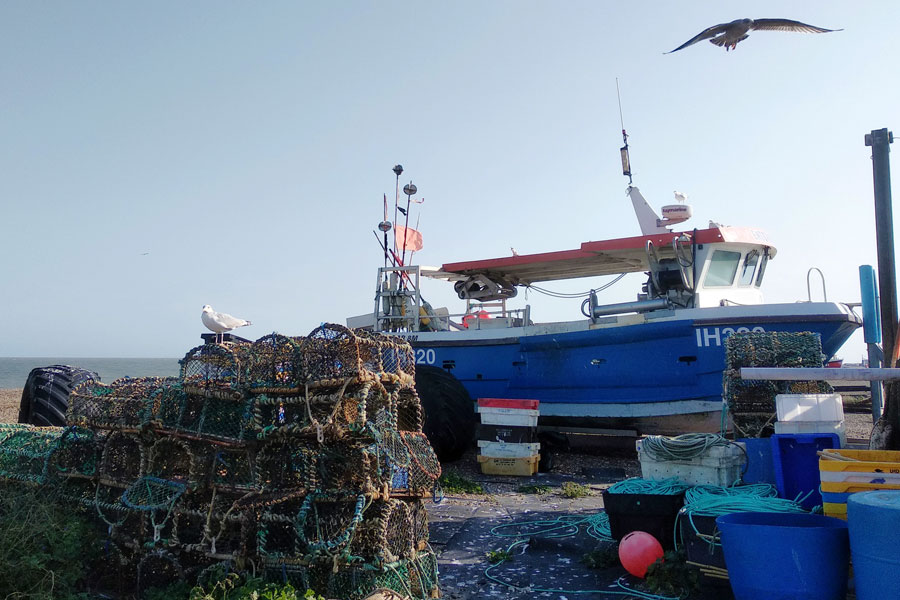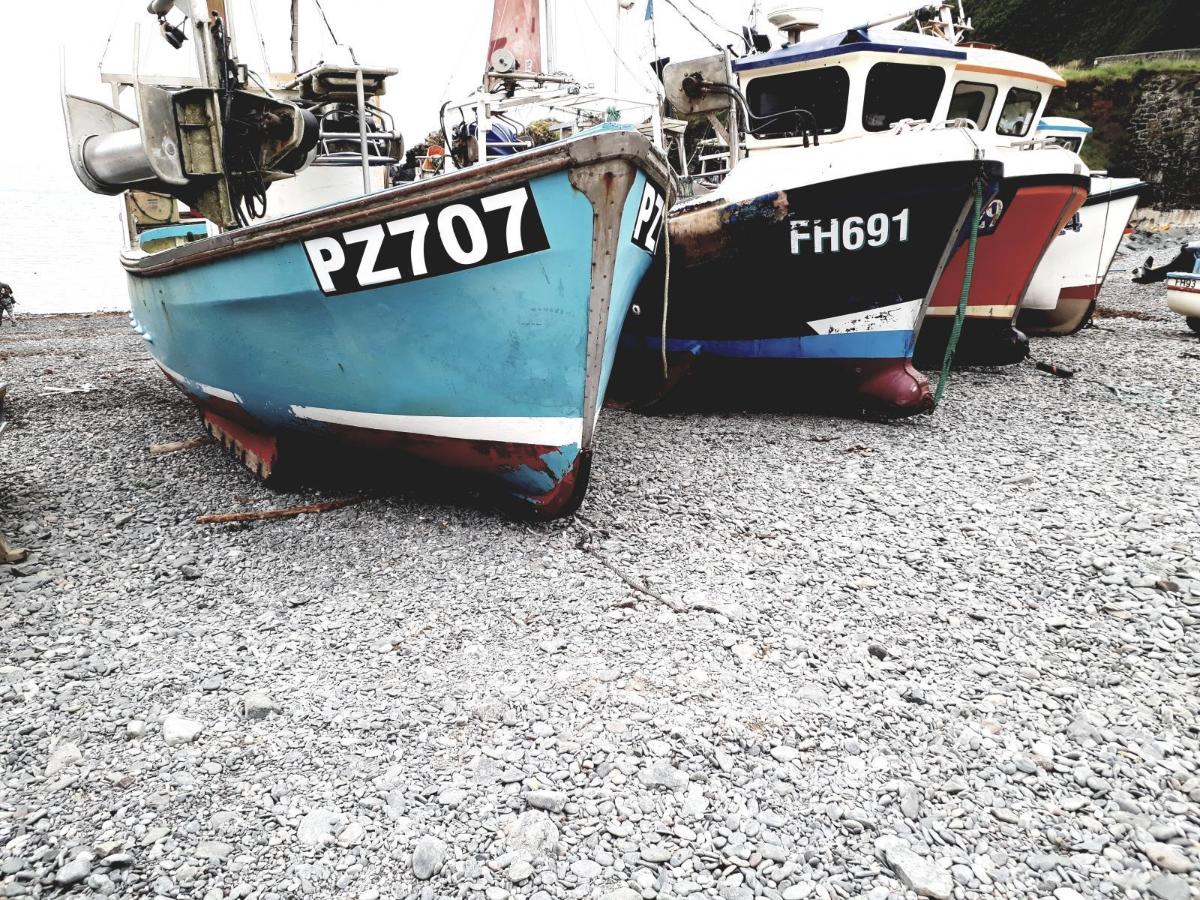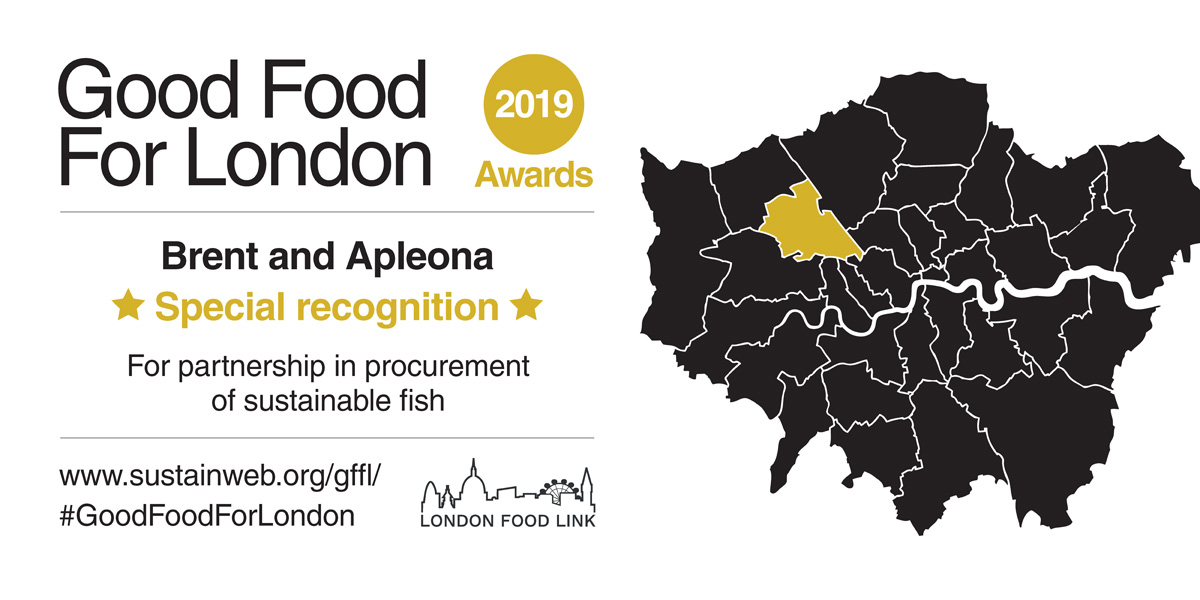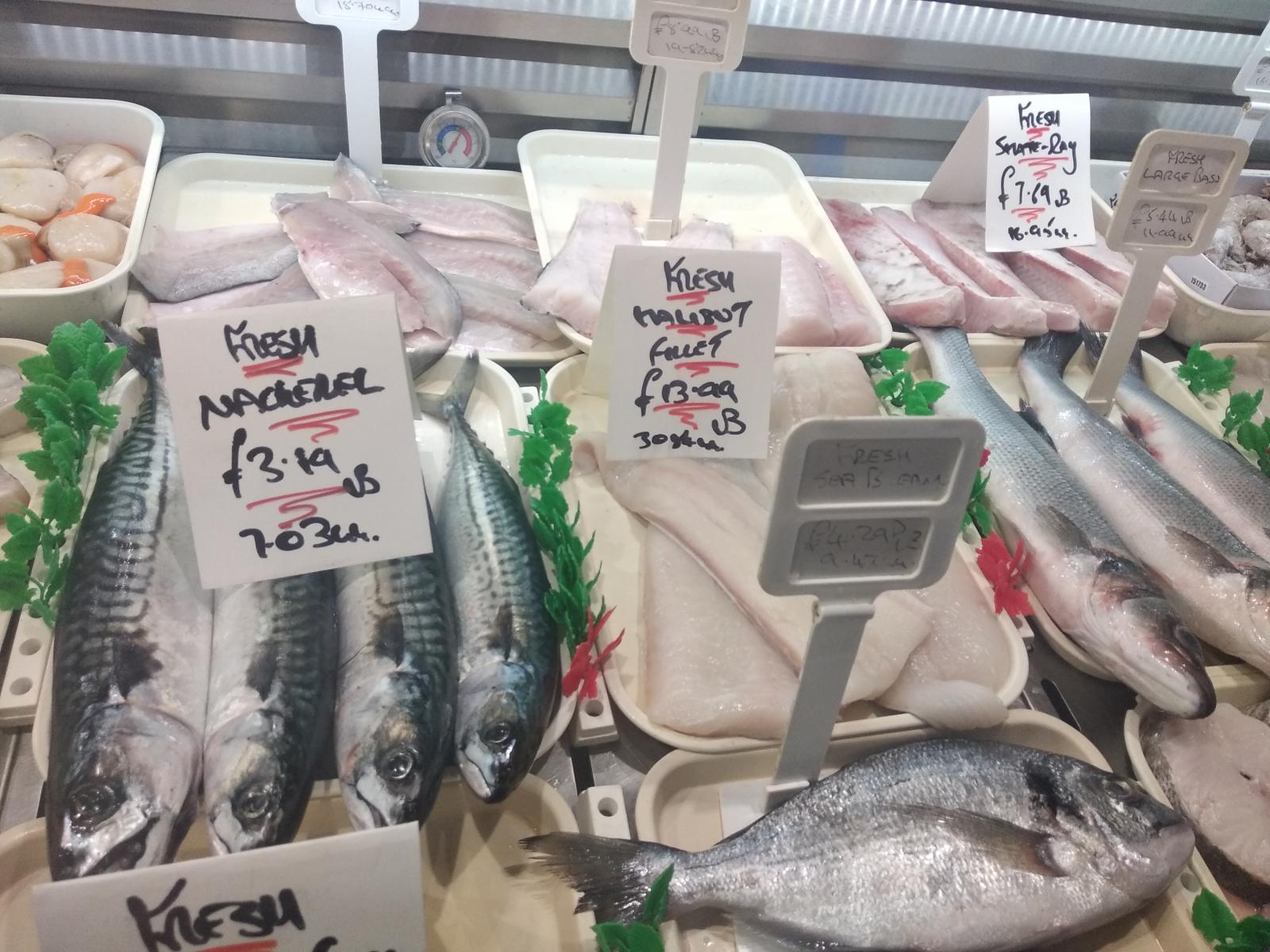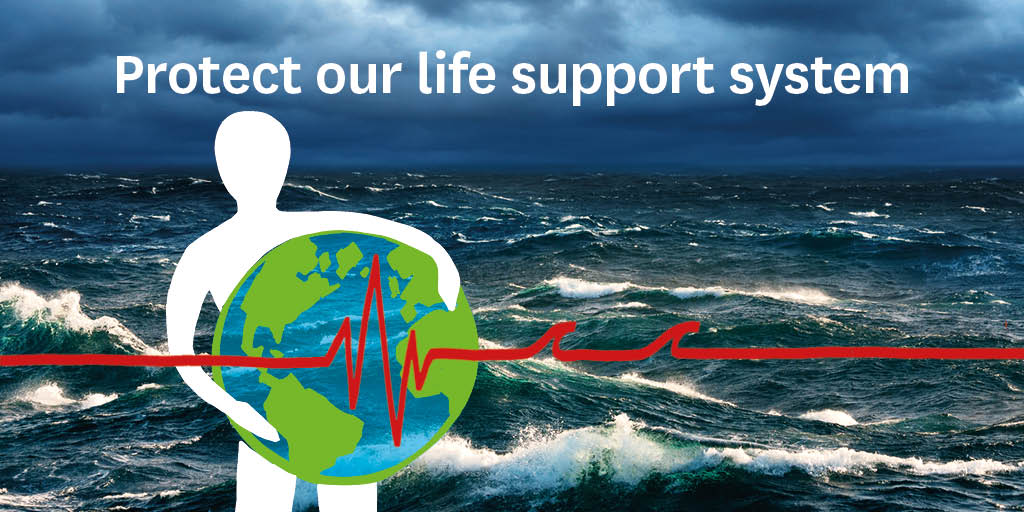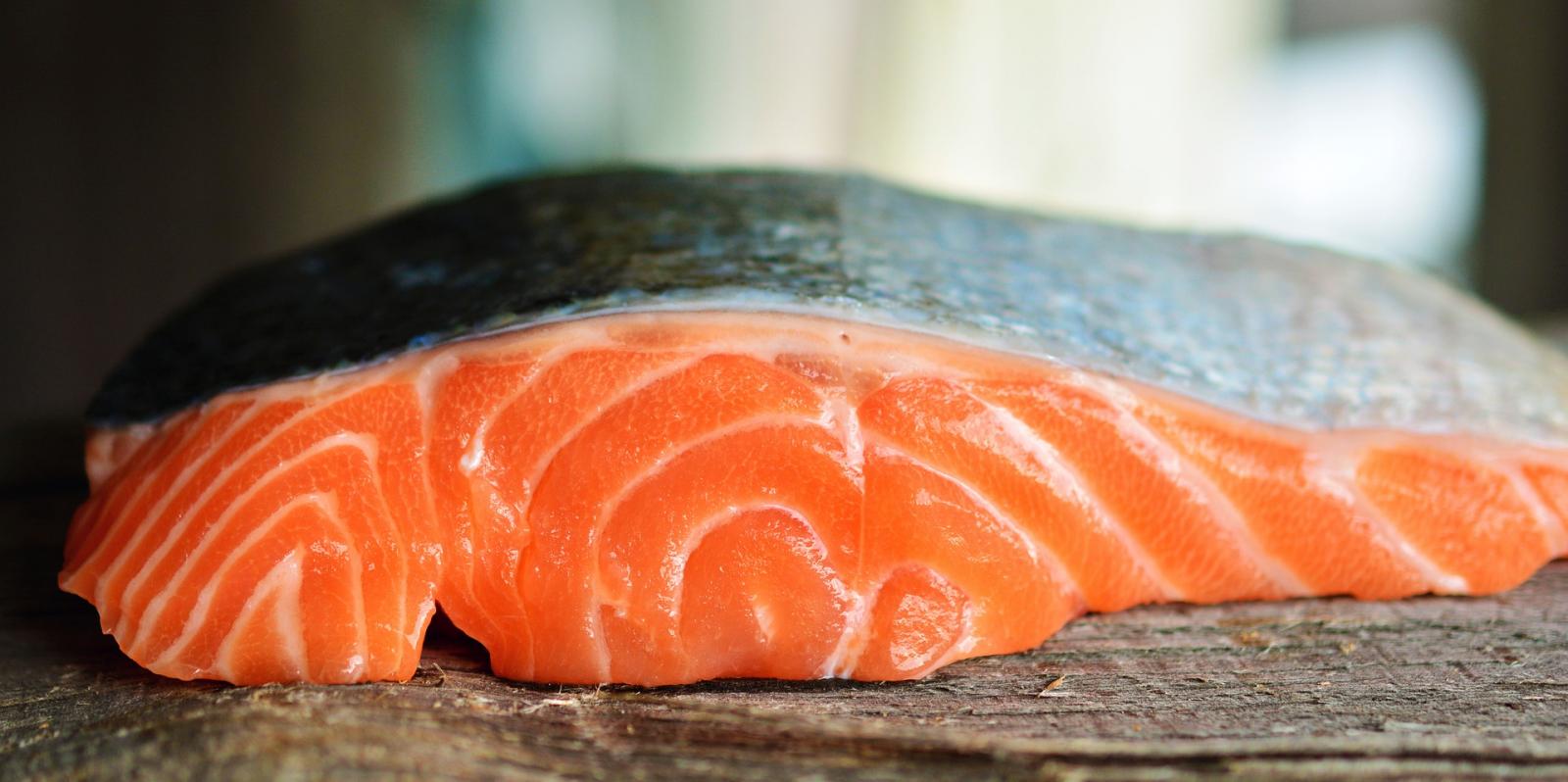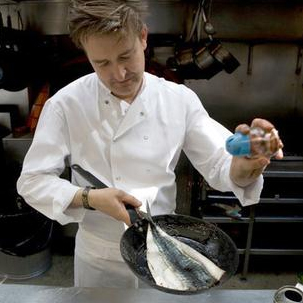 With so many fish-related TV shows and news stories around at the moment, and over half a million people now signed up to Hugh Fearnley-Whittingstall’s Fish Fight, it’s likely that many of us are thinking about changing our fish buying habits. Kelly Parsons finds out how easy that is to do.
With so many fish-related TV shows and news stories around at the moment, and over half a million people now signed up to Hugh Fearnley-Whittingstall’s Fish Fight, it’s likely that many of us are thinking about changing our fish buying habits. Kelly Parsons finds out how easy that is to do. Recent media coverage has revealed that when it comes to supermarkets it’s no wonder some less than sustainable seafood purchases slip through our net. Not only is the ‘fresh’ fish on some supermarket wet counters likely to have been frozen and then thawed out; but up to a quarter of the fish we buy could be a completely different species to what’s marked on the label.
And, perhaps most worryingly, the signposts we rely on to help make more ethical choices have also come in for some stick of late. Research into supermarket claims such as ‘sustainably sourced’, ‘protects the marine environment’, and ‘responsibly farmed’ found that they are decidedly fishy. It seems our good intentions are being undermined by bad information and irresponsible retailers.
But surely the humble lunchtime sandwich is a simpler shopping prospect? To find out, the Jellied Eel went undercover shopping to some of London’s best known sandwich sellers, to see if sustainable fish was any easier to catch here. Cue pink panther theme tune.
Cheese and tomato
First snooping stop, King’s Cross train station. At Camden Food Company, all I can establish at first look is that the tuna sandwich is ‘dolphin safe’. I ask the manager if there’s any information about the fish in their sandwiches; where it came from, how it was caught, or anything about the environment. “It just comes from Euston,” the manager laughed, in what turns out to be a recurring response throughout ‘operation sustainable fish sandwich’. Other replies, all, I hasten to add, from friendly and helpful staff, include: “from a factory”; “from the Netherlands”; “from France, it comes in a vacuum pack and we mix it with mayonnaise” and my particular favourite (courtesy of staff in the Princes Street branch of Starbucks) “it comes from a packet”, accompanied by an indication in mime of how big said packet was.
Along the station concourse at Upper Crust, I’m waiting in the queue for the manager, who’s gone to ask the sandwich maker about tuna, when a man in the queue behind me remarks “it good that you ask. More people should ask about where fish is from. It’s the only way it’ll get sorted out.” “So, do you ever ask?” I enquire, buoyed with renewed hope about my fishy mission. “No”. Meanwhile the manager arrives back enthusiastically brandishing a large catering-size tin of John West tuna, pointing to small print on the label which reads ‘dolphin friendly’. “So that’s good isn’t it!” she says. I thank the staff for their kind help, and buy a cheese and tomato sandwich.
Poles, lines and dolphins
My next stop, Café Nero on Regent’s Street, is extremely busy and extremely noisy, and the idea of customers routinely asking about fish provenance or sustainability in this context seems extremely unlikely. Of course, much to the annoyance of the folks behind me in the queue, I do this. Small print on the shelf label by the tuna sandwich says it’s made with ‘dolphin friendly skipjack tuna’ so I’m hoping someone can elaborate. The response: “well, I guess it’s good for the dolphins.”
It’s a similar situation - no information from packaging, shelf, leaflets, staff or website - in Subway, Greggs, Boots, Paul, Apostrophe, and Tesco. A Tesco manager did however inform me, when asked about its sustainability, that the sandwich in question should not be left out of the fridge for more than two hours! M&S, the Co-operative and Sainsbury’s offer a little more, and the pole and line caught method at least gets name-checked by all. M&S and Coop have more information on their fish policies if you contact the head office, although your average shopper isn’t going to make that much effort.
Delirium has evidently set in as I wander into Burger King to investigate its Ocean Catch burger. No information about the species, source or method of catch of the fish, and it’s the same story in McDonald’s. This seems a shame, particularly as I know for a fact McDonald's is actually doing quite a lot of work behind the scenes on fish sustainability, something they clearly aren’t bothering to tell any of their customers.
Later, I scour the UK Burger King website, but find no details about the method of catch, or even the species of fish in an Ocean Catch burger. The website does, however, reassure me that ‘Our Ocean Catch is loved by sea-faring folk...’. However, despite a poor showing in store, splashed across the McDonald’s website is an announcement that its Filet-o-Fish sandwich is made from ‘filleted Alaskan Pollock or Hoki, additive-free and sourced from sustainable fisheries’ and that ‘all fisheries are certified by the Marine Stewardship Council’.
Crowning glory
But then, just as I’m contemplating the bizarre reality that McDonald’s might actually be leading the fish sandwich pack, in steps Pret a Manger to steal its crown. It’s the only sandwich seller that actually seems to have taken any action to stock and promote sustainable fish. The outcome is prominent, and often built-in-to-the-name, information about the source and method of production of the fish on every sandwich shelf label, except for the kids ones. Enthusiastic staff are able to hand over a leaflet explaining that the crayfish are ‘wild, hand caught’; the smoked salmon ‘Scottish, traditionally smoked, cured with salt and demarara, low density salmon farms, open water’ and the tuna ‘pole and line caught’.
Depressingly, my snapshot of the sandwich scene has confirmed that Pret is swimming against the tide. Most sandwiches I spied were lucky to be branded dolphin friendly, a claim which, while arguably great news for dolphins, says nothing at all about the wellbeing of the tuna, or any other marine life that might get accidentally caught up in the fishing process along the way. Yet the term increasingly seems to be regarded as a short hand for sustainable fish.
This is all the more frustrating given that most of us stop off for a sandwich at some point during the week, and some of us do so every day, meaning our lunchtime choices have the potential to make a big statement about supporting sustainable fish practices. So next time you are in the queue, probably in a hurry to get back to your desk, take a second to ask your server a question about where the fish you are about to eat is from. If we all make enough of a fuss, there’s a far better chance the response won’t be “Euston”.
The Results
Thanks to Matt Atkinson, Pamela Brunton, Kath Dalmeny and Ben Reynolds for help with completing the survey.
| Shop | Sandwiches | Info on label? | Info in store/leaflets/ staff | Info easily available on website? | Our rating |
| Apostrophe | Poor | ||||
| Boots | Tuna and sweetcorn, Salmon and cucumber, Prawn mayonnaise, King prawn and lemon dressing | Poor | |||
| Burger King | Ocean Catch burger | Poor | |||
| Café Nero | Tuna salad sandwich | Labelled as made with ‘dolphin-friendly skipjack tuna’ | Poor | ||
| Camden Food Company | Tuna mayo sandwich, Smoked mackerel wrap, Sweet chilli prawn wrap | Tuna labelled as ‘dolphin safe’, nothing on mackerel or prawns | Poor | ||
| The Co-operative | Tuna mayo, Tuna and cucumber on malted | Yes, symbol suggesting ‘dolphin-friendly’, mentions ‘responsibly sourced’ | No, but the Coop have a responsible fish sourcing policy, stock Marine Stewardship Council approved fish and have removed all fish from the Marine Conservation Society ‘fish to avoid’ list. This information is available on request from head office, but distribution of fish info in stores is inconsistent. | Much on ethical policies, limited on fish specifically | Good |
| EAT | Tuna and cheddar melt with dolphin-friendly skipjack, Tuna and cucumber baguette, Skipjack tuna and cucumber on brown, Crayfish lemon and rocket | Tuna labelled as ‘dolphin friendly’ | Assessment missing | ||
| Greggs | Tuna mayo sub, Tuna crunch bloomer, Tuna mayo bloomer | Poor | |||
| M&S | Tuna and sweetcorn on malted brown bread, Smoked salmon and free range egg mayo, Tuna salad with lemon and chive dressing on white, Prawn mayo on oatmeal bread, Prawn mayo on oatmeal bread, Oak Smoked Salmon and soft cheese on oatmeal bread | Good info provided on source and method on most sandwiches | Lots of useful info on fish sourcing policy | Good | |
| McDonalds | Filet-o-Fish | Yes, explained to be MSC-certified Alaskan Pollock or Hoki | Good (Good policy, poor communication | ||
| Paul | Tuna and salad on wholemeal | Poor | |||
| Pret | Pole and line caught tuna baguette with skipjack tuna, Scottish smoked salmon, Wild crayfish and rocket, Pole and line caught tuna nicoise, Pole and line caught tuna and rocket bloomer, Smoked salmon and soft cheese bloomer, Tuna mayo 'Just for Kids' | Prominent information on source, method of production, on all sandwiches except children’s one. | Leaflet giving details of buying policy provided by staff | Yes, extensive info | Excellent |
| Sainsbury’s | Prawn Mayonnaise on oatmeal, Smoked Salmon and Soft cheese on oatmeal,Tuna and Sweetcorn with seasoned mayonnaise on malted, Be good to yourself Tuna and Cucumber on malted bread,Taste the difference. King Prawns and Rocket on multiseed farmhouse batch | Inconsistent – some good some lacking | Information on general company fish sourcing policy. From Jan 2011 all tuna to be pole and line caught including sandwiches. | Good, but inconsistent | |
| Starbucks | Tuna and mature cheddar melt | Labelled as pole and line caught | OK | ||
| Subway | Tuna 6-inch sub, Tuna kids sub with cheese | Poor | |||
| Tesco | Tuna and cucumber, Smoked salmon and Philadelphia light, Tuna and sweetcorn, Prawn mayonnaise, Tuna and cucumber | No, although one label mentions ‘welfare – visit tescofarming.com to learn how our fish experts work with fisheries and farmers’ | No, but elsewhere is the announcement of a new pledge to make all tuna pole and line caught by 2012 | Poor | |
| Upper Crust | Tuna mayo baguette | No (when pressed staff located ‘dolphin friendly’ label on catering-size tuna tin) | Poor | ||
| WH Smith (Foo-Go) | Tuna and sweetcorn sandwich | Poor |
Article reproduced from The Jellied Eel, London's free ethical food magazine: www.thejelliedeel.org
Sustainable Fish: A campaign to protect precious marine environments and fishing livelihoods, and call for fish to be bought from sustainable sources. We want to show what can be done if people and organisations make a concerted effort to change their buying habits.

